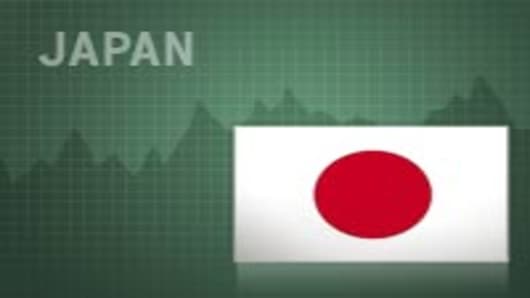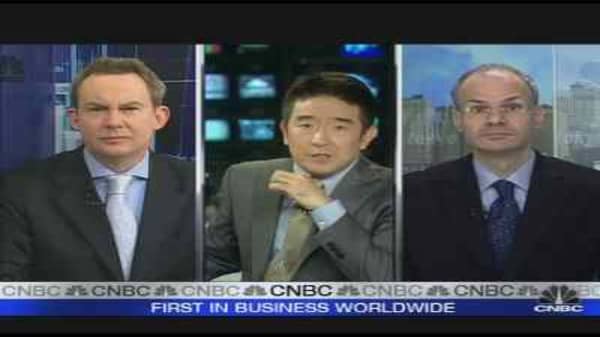Japan's annual consumer inflation accelerated to a decade-high in May on surging energy costs, and household spending dipped as the job market stagnated, darkening the outlook for the world's second-largest economy.
Industrial production rebounded in the month, but the government cut its assessment to say output was "slightly weak though it remains in a flat trend".
Soaring oil and food prices have been blamed for dampening corporate profits and consumer sentiment as well as complicating monetary policy at the Bank of Japan, whose key policy rate is already low at 0.5 percent. Many analysts expect the central bank to keep interest rates on hold this year.
"If the Bank of Japan raises interest rates to beat inflation, that would further worsen the economy," said Takeshi Minami, chief economist at Norinchukin Research Institute. "As such, the central bank won't be able to hike rates until companies are able to pass on rising costs to consumers and earn enough to boost wages," he added.
The Nikkei 225 Average fell 2 percent, with exporters such as Toyota Motor sliding after U.S. stocks plunged on record high oil prices. But the yen was little moved, trading around 106.80 yen to the dollar.
The core consumer price index (CPI), which excludes volatile fresh food prices but not other food products or oil prices, rose 1.5 percent in May from the same month last year, data showed on Friday, above a consensus market forecast for a 1.4 percent rise.
It was the biggest annual inflation rise since March 1998.
After hovering below zero percent for most of 2007, core CPI has stayed around 1 percent this year due to spikes in oil prices, which surged nearly 4 percent to a record over $140 a barrel on Thursday.
Rising energy and raw material prices have been squeezing corporate profits and slowing Japan's growth. Reflecting this trend, the BOJ's tankan corporate survey due next Tuesday is expected to show a sharp fall in business sentiment.
Consumer are also feeling the pain as the availability of jobs dips to the lowest level in three years.
The jobs-to-applicants ratio fell to 0.92 in May, meaning 92 jobs were available per 100 applicants, down from 0.93 in April but matching the market consensus, while the unemployment rate stayed at 4 percent in May.
Worried about rising food and energy costs, consumers kept tightening their purse strings. Household spending fell 3.2 percent in May from a year earlier, below a median market forecast for a 2.2 percent drop, other data showed.
"All in all, the data suggests that Japan's economy has entered a clear downtrend in the second quarter," said Junko Nishioka, Japan economist at ABN Amro Securities.
Although solid exports to China and other emerging economies have supported Japan's growth so far, economists expect the economy to contract slightly in the April-June quarter.
Industrial output -- a key gauge of the strength of manufacturers -- rose 2.9 percent in May from a month earlier, slightly above the median market forecast of 2.7 percent rise.




